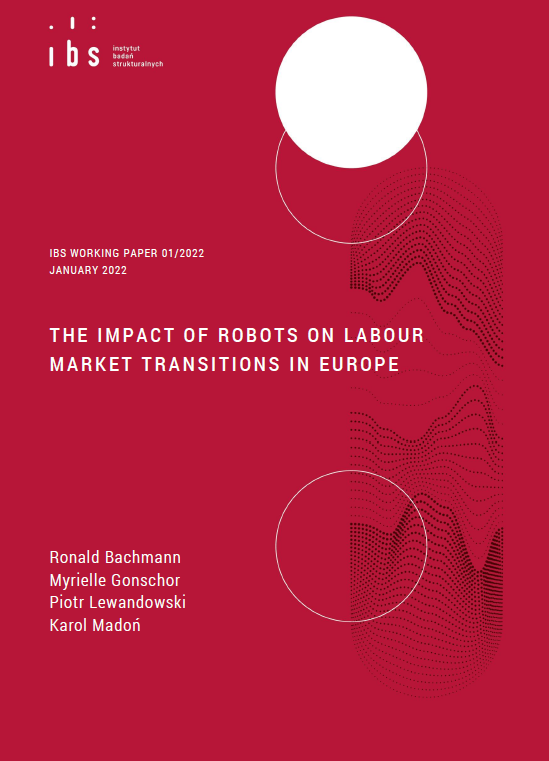We study the effects of robot exposure on worker flows in 16 European countries between 1998-2017. Overall, we find small negative effects on job separations and small positive effects on job findings. Labour costs are shown to be a major driver of cross-country differences: the effects of robot exposure are generally larger in absolute terms in countries with low or average levels of labour costs than in countries with high levels of labour costs. These effects are particularly pronounced for workers in occupations intensive in routine manual or routine cognitive tasks, but are insignificant in occupations intensive in non-routine cognitive tasks. For young and old workers in countries with low levels of labour costs, robot exposure had a beneficial effect on transitions. Our results imply that robot adoption increased employment and reduced unemployment most in the European countries with low or average levels of labour costs.

We thank Hanna Frings, Sandra Schaffner, Bernhard Schmidpeter, and Eduard Storm; and the participants of SOLE 2021, ESPE 2021, the Jobs and Development Conference 2021, SMYE 2021, the 7th European User Conference for EU Microdata, and a seminar at RWI for helpful their comments. This paper uses Eurostat data. Eurostat has no responsibility for the results and the conclusions, which are those of the authors. This project has received funding from the European Union’s Horizon 2020 Research and Innovation programme under grant agreement No. 1001004776.
Myrielle Gonschor – Rheinisch-Westfälisches Institut für Wirtschaftsforschung (RWI), Essen; RGS, Essen
Rheinisch-Westfälisches Institut für Wirtschaftsforschung (RWI), Essen, DICE/Heinrich-Heine-Universität, Düsseldorf; IZA, Bonn

